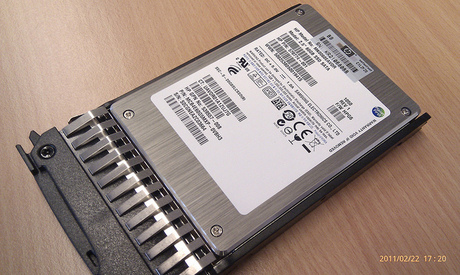How safe is your SSD-stored data?

Some modern solid state drives (SSDs) can lose data in as little as a few days without power under certain environmental conditions, recent research shows.
A presentation by Seagate's Alvin Cox, the chairman of the Joint Electron Device Engineering Council (JEDEC), finds that enterprise-class SSDs are often only rated to store data for a few months without power.
For every 5°C increase in temperature, the period of time data is stored on some SSDs decreases by half, the report indicates.
In rooms with sufficiently high temperature, this can decrease the storage time of some enterprise-class SSDs to weeks or even days. In 30° temperatures, for example, the storage time of enterprise SSDs can be reduced from 20 weeks to 10 weeks.
Consumer-grade SSDs are by contrast designed to store data for up to two years without power under normal operating temperatures of up to 25°C. But a 5° increase in temperature can halve this to a year.
The presentation states that too many people are now relying on SSDs to store data, which risks the data being erased after prolonged periods without power to the device.
For important data requiring long-term storage, the JEDEC recommends that companies and individuals use conventional magnetic drives to create backups.
Seven predictions that will shape this year
Pete Murray, Managing Director ANZ for Veritas Technologies, predicts trends that will have a...
ARENA jointly funds Vic's first large-scale battery storage
Two large-scale, grid-connected batteries are to be built in Victoria with the help of the...
Protecting next-gen storage infrastructures
Companies looking to modernise their overall IT infrastructure cannot afford to take a relaxed...



